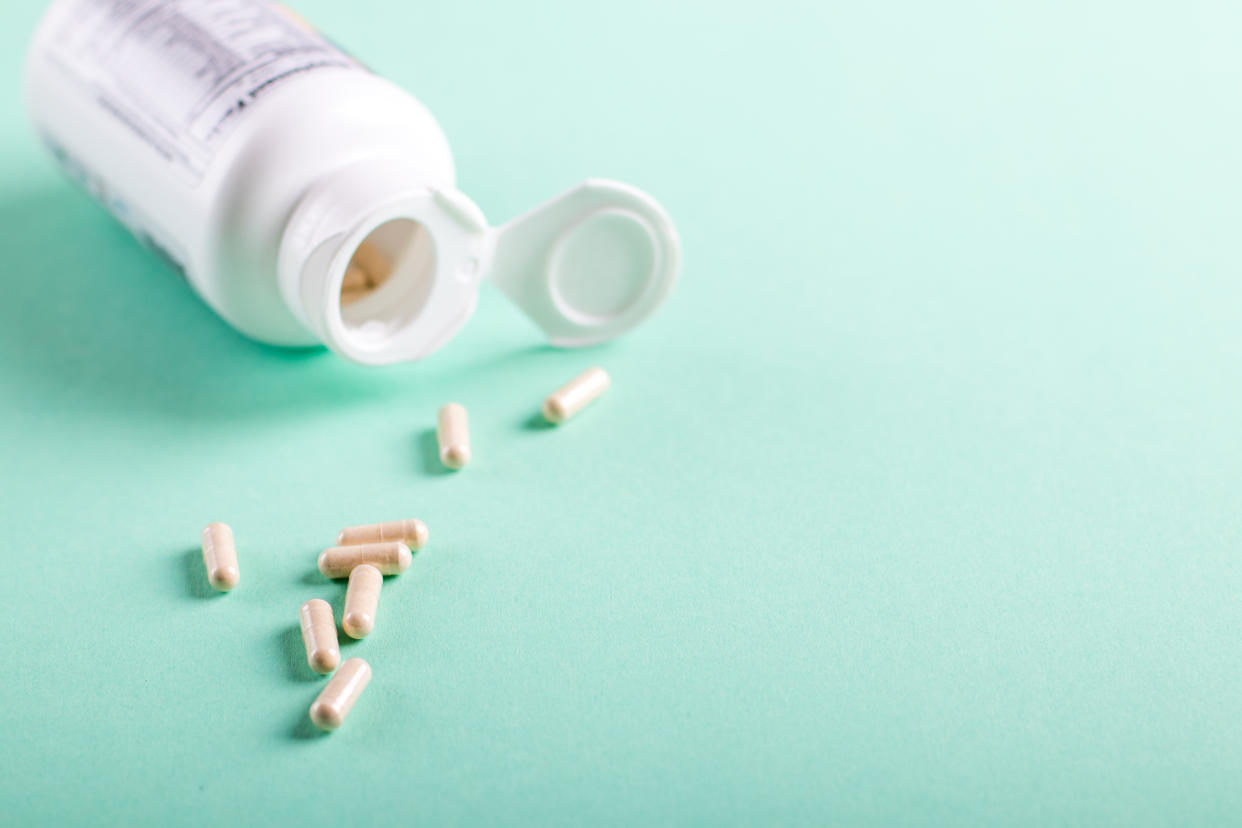Probiotics 'may help ease depression'

Probiotics may help ease depression, research suggests.
The live “good bacteria” can be taken as supplements, or found naturally in yoghurts or fermented foods.
After analysing the mental health of participants across seven studies, scientists from the University of Brighton found taking probiotics – either alone or alongside prebiotics – was linked to a “measurable reduction in depression”.
Read more: Can workers take a ‘mental health sick day’?
Prebiotics are a source of dietary fibre that acts as a fertiliser for probiotics to multiply. These can also be taken as a supplement or are found in high levels in onions, garlic and leeks.
Although unclear exactly how these boost our mood, the so-called gut-brain axis is increasingly coming to light, with there supposedly being a relationship between the mind and the bacteria that reside in the digestive tract.
Not everyone is convinced, however, with other experts stressing the studies were of mixed quality. Probiotics should therefore only been taken as “complementary to standard treatments”.

Probiotics linked to improved mental health
Just under one in five (19.7%) Britons over 16 showed signs of depression or anxiety in 2014.
In the US, around 15.7 million adults (6.7%) aged 18 or over had at least one major depressive episode in the same year.
Treatment typically involves a combination of self-care, talking therapies and medication.
To learn about the potential of pro- and prebiotics, the Brighton scientists looked at studies carried out between 2003 and 2019.
Read more: Half a million Britons take online suicide prevention course amid lockdown
Results – published in the journal BMJ Nutrition Prevention & Health – revealed every study found either a significant fall or improvement in anxiety symptoms, or “clinically relevant changes in biochemical measures of anxiety and or depression”, following probiotic use.
Twelve probiotic strains were specifically investigated, of which 11 were found to have benefits.
Although unclear, probiotics may reduce the production of inflammatory chemicals, like cytokines, which could then boost mental health.
The supplements may also regulate tryptophan, a chemical that is thought to be involved in the gut-brain axis in psychiatric disorders.
Patients with depression or anxiety often also have other health complications, like irritable bowel syndrome (IBS), according to the scientists.
“As such, the effect that probiotics have on patients with [common mental disorders] may be twofold,” they wrote.
“They may directly improve depression in line with the observed findings of this review, and/or they might beneficially impact a patient’s experience of their [common mental disorder] by alleviating additional co-morbidities.”
Probiotics have been suggested as a treatment for IBS to help ease diarrhoea, constipation or abdominal cramps.
Recent guidelines from the American Gastroenterological Association, however, state there is “insufficient evidence to recommend probiotics” for IBS.
The Brighton scientists stressed the studies they analysed were small and did not last long.
Read more: Overworking in lockdown may take its toll on our mental health
It is therefore unclear whether taking probiotics for depression is beneficial long-term or has side effects.
Based on the results, however, it is worth investigating further, added the scientists.
“Purely from the information gathered for this review, it is valid to suggest that, for patients with clinically recognised depression: isolate, or adjuvant prebiotic therapy is unlikely to affect an individual’s experience of their condition in a quantitatively evident way,” they wrote.
“That isolate or adjuvant, probiotic/combined prebiotic-probiotic therapy may offer a quantitatively measurable improvement in parameters relating to depression.
“However, there are inadequate data to suggest anything meaningful to support or refute the use of either pre/probiotic agents (or a combination of both) in patients with clinically recognised anxiety disorders; this would be a useful area to investigate further.”

Study ‘fails to tell us how much probiotics work’
One expert called the study review “well conducted”, but stressed not all probiotics are created equal.
“There is a tendency in the field to ‘lump’ all commercially available strains into the same category independent of the level of evidence there is”, said Professor John Cryan from University College Cork.
“We know strains really matter and this review is not able to identify what it is about specific strains that render them with beneficial effects”.
Others also questioned the validity of the results.
“The review reports on a small number of small trials of generally poor quality,” said Professor David Curtis from University College London.
“Although these published studies claim to show some benefits of probiotics on depression, we have no idea whether there were other studies which showed no effect which were not published.
“Overall, doctors do not believe probiotics are likely to have much of an effect on mood.
“People with depression should seek medical advice and not try to treat themselves with dietary supplements which are not of proven benefit”.
Professor Kevin Whelan from King’s College London agreed, stressing the results “must be carefully interpreted”.
“The review tells us that in people with depression probiotics may work, however, it fails to tell us how much they may work,” he said.
“Many of the probiotics used in the studies are not widely available in shops.
“Probiotics often contain different strains of bacteria and we do not know if the supplements, sachets and fermented milks you find on supermarket shelves will work, or only those probiotics used in the research studies.
“Most of the studies were conducted in people with depression [who were] also using antidepressant medication.
“So it is crucial probiotics are seen as complementary to standard treatments recommended by your doctor and not as an alternative”.


